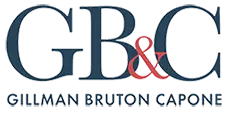Short Sales Benefit Realtors But May Not Benefit Homeowners Who Should Be Fully Informed About Alternatives Such As Chapter 7 Bankruptcy and the Possible Tax Consequences of a Short Sale
Nearly every homeowner facing foreclosure receives notices from their mortgage company offering “Loss Mitigation Options” which include loan modification, forbearance agreements, Short Sales, and Deed in lieu of foreclosure. Many of our clients who decide they no longer wish to “save” their home or do not believe they have the financial ability to do so are lead to believe, often by realtors, that a Short Sale is their best alternative before considering all of their options.
Realtors, or real estate brokers, by suggesting that the Short Sale is the best alternative, at a minimum, cross into a dangerous area of engaging in the unauthorized practice of law.
In a recent decision, the New Jersey Supreme Court reviewed In re Opinion No. 26 of the Comm., 139 N.J. 323 (N.J. 1995) which considered whether real estate brokers are engaged in the unauthorized practice of law when they conduct residential real estate transactions in which the “sellers and buyers are . . . unrepresented by counsel.”
The Court held that, although it has the authority to prohibit residential real estate closings conducted without the assistance of counsel, “the public interest does not require such a prohibition.” Id. at 326, 654 A.2d 1344. Instead, it determined that if residential buyers and sellers “are informed of the true interests of the broker and title officer, sometimes in conflict with their own interests, and of the risks of not having their own attorney, [they] should be allowed to proceed without counsel.” Zaman v. Felton, 2014 N.J. LEXIS 889, 35-37 (N.J. Sept. 9, 2014) emphasis added.
The question of whether there is conflict between the true interests of a homeowner who is threatened by the loss of their home and a real estate broker also arises when the broker advises the homeowner that they will benefit from a short sale.
For example, it has been our experience that realtors often attempt to persuade homeowners to seek a Short Sale based upon a claim that a short sale will improve the homeowner’s ability to reestablish their credit at some future unspecified time. When we have asked for the authority upon which the realtor bases this ‘advice’, none has ever been provided.
Another example is that homeowners are sometime offered moving expenses. While payment of these expenses may benefit some owners for whom no alternative exist and who will be removed from their property following a sheriff’s sale, many homeowners do have alternatives such as filing a Chapter 7 Petition which may allow the homeowner to remain in the home for an extended period of time, discharge other debts and get a clean slate and a fresh start.
As the New Jersey Supreme Court has “….. noted the potential conflict between the interests of the broker, who may choose the attorney who drafts the deed, and the interests of the seller, who may be under the mistaken impression that he or she is receiving independent legal advice from counsel selected by the broker.” Opinion 26, supra at 336-37
Anyone considering a Short Sale of their property should give due consideration to the concern expressed by the Court about the “….potential conflict between the interests of the broker, who may choose the attorney who drafts the deed, and the interests of the seller”, and consult an attorney whose sole and exclusive duty is to them.


